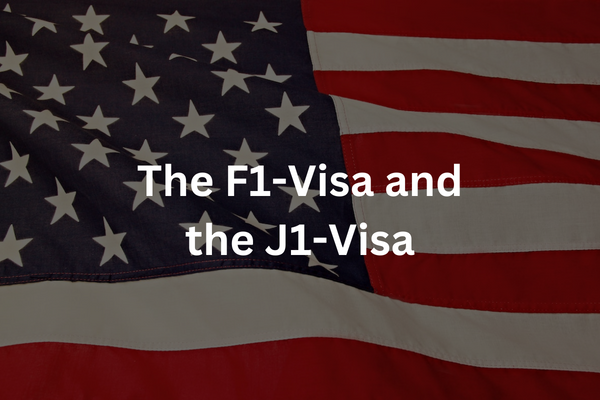The Netherlands and UK are both excellent countries for international education. Both countries have world class universities, ranked amongst the best universities in the world. Both countries have excellent lifestyle, and are well developed for a good quality of life. But as an international student, if you are ever in a dilemma of which country to choose, and which universities among the country to select, you can take a look at this article.
Average fees
Netherlands and the UK both have excellent universities to study a wide range of courses for international students. But relatively, average fees for the UK are higher than the Netherlands. On the other hand, living costs are somewhat cheaper in the UK than in the Netherlands. That being said, there are more elite universities in the UK like Oxford, Cambridge.
Living and Accommodation costs are a lot cheaper in Netherlands, which is why the country has seen a surge of international students in recent years. World class education with cheap living costs? Count me in.
| University expenses | United Kingdom | Netherlands |
|---|---|---|
| Tuition Fees | €12,000-€18,000 | €6,000-€15,000 |
| Accommodation ( One Bedroom) | €600-€700 | €350 (Suburbs) – €800-900 (Higher end) |
| Living Costs | €12,000 – €15,000 | €9,600-€13,200 |
| Average expenses | €9715 | €7900 |
Below are some of the univerities in the Netherlands and the UK and the annual fees for the respective universities. (Prices are subject to change)
| Universities in the Netherlands | Annual Fees |
|---|---|
| Amsterdam University of Applied Science | €8,495 |
| Wittenborg University of Applied Science | €9,000 – €15,000 |
| Inholland University of Applied Science | €8,900 – €9,800 |
| The Hague University | €8,375 – 12,875 |
| Average Annual Fees | €10,000 |
| Universities in the UK | Annual Fees |
|---|---|
| University of Hertfordshire | £13,100 – £13,900 |
| University of Portsmouth | £13,500 – £14,450 |
| University of Plymouth | £13,750 – £16,750 |
| University of Northampton | £10,700 – £11,900 |
| Average Annual Fees | £13,000 |
Post study Work
As a graduate of a Dutch university, you have plenty of options that allow you to continue living and working here. The Netherlands provides 1 (ONE) year of Post Study Work for international students. In the Netherlands, the most common post-study work visa for international students is called the Orientation Year Residence Permit.
You must have finished an approved bachelor’s or master’s degree, or a PhD, at a Dutch university within the last three years to be eligible for the Orientation Year residence visa.
The UK provides 2 (TWO) years of Post Study Work for international students in the form of a Graduate Route. International students with a valid visa who have successfully completed an undergraduate degree or higher at a Higher Education Provider with a track record of compliance will be eligible for the Graduate Route.
With this visa, you will be permitted to work or look for work in the UK at any skill level for a maximum of two years. PhD graduates will be permitted to stay for a period of three years. Once you have found a suitable position, you will also be able to transition into skilled work.
The Graduate Route will require a new visa application, which can only be submitted from within the United Kingdom, with a €850 visa fee as well as a health surcharge.
English Proficiency
Both the countries require International students to have a good English, since the primary form of communication will be in English. Your proficiency in universities are judged based on your test scores (IELTS, TOEFL, PTE, Cambridge).
In the Netherlands, most of the universities require an IELTS score 6 to 7 for admission, and in the UK, an undergraduate level requires a 6.5+ IELTS score. Of course, these requirements are different for different universities, but in general, a 7+ IELTS score will guarantee your eligibility in the Language field in both the countries!
Opportunities after graduation
After graduation, both are countries have excellent prospects in terms of work. The job market, however is much more easier in the Netherlands than in the UK. The UK job market is very competitive, and you will need to work hard to land a good job. Further, average wages in the Netherlands are higher than in the UK.
In recent years, international students in the Netherlands have seen a sharp rise due to a huge increase in employment opportunities. Some jobs in demand in Netherlands after graduation include Accounting Managers, ICT Specialists, Creative Directors, Service Advisors, Architects, Bank Branch Managers, Healthcare Specialists and Construction Project Managers.
Popular jobs in the UK include:
- Accountant/Finance Manager
- Business Analyst
- Data Scientist
- HR Manager
- Marketing And Sales Professionals
- Nurse
- Project Manager
- Software Developer
Conclusion
We asked a lot of people, and looked up a lot of reviews for both of the countries, and most of the people said that the choice of international students depend on their preference. Netherlands is generally well organized, cheaper and safer and opportunities are always ups for grabs.
UK too is an excellent country to study as an international student, with excellent universities, good job opportunities and a great student ecosystem.
So, the choice is yours! Both the countries are fabulous for international studies, but it’s up to you to choose which one suits you the best. Still confused? Feel free to contact us.






